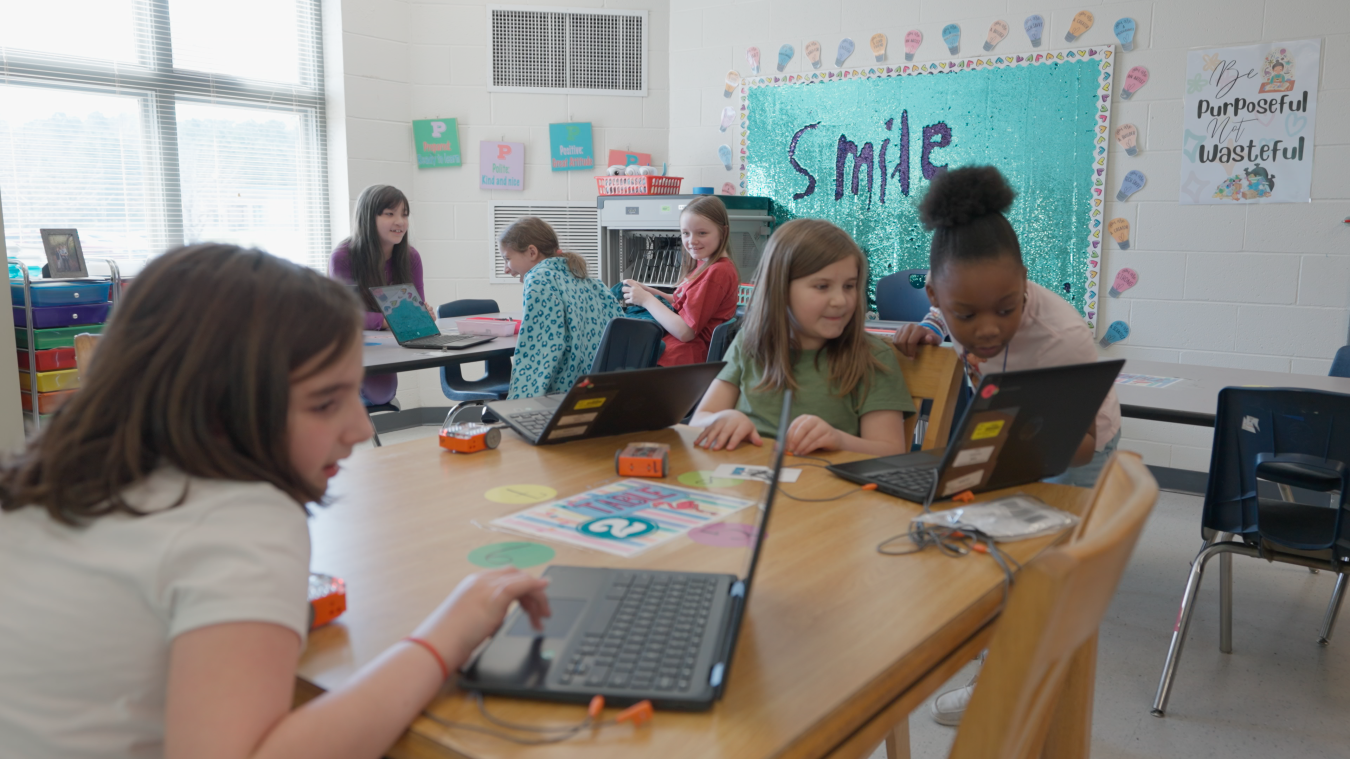A U.S. Department of Energy Office of Environmental Management contractor at the Savannah River Site (SRS) continues to recognize innovative teaching methods by contributing thousands of dollars through the Innovative Teaching Mini Grants Program each year.
Office of Environmental Management
May 28, 2024
During the recent Savannah River Nuclear Solutions (SRNS) Innovative Teaching Mini Grants Program reception, 117 educators from the Central Savannah River Area and Orangeburg County received their shares of $75,000 in grants.
AIKEN, S.C. — A U.S. Department of Energy Office of Environmental Management contractor at the Savannah River Site (SRS) continues to recognize innovative teaching methods by contributing thousands of dollars through the Innovative Teaching Mini Grants Program each year.
This year, 117 educators received their shares of $75,000 at a celebration in Aiken. And since 2009, Savannah River Nuclear Solutions (SRNS) has contributed over $975,000 to support educators from public, private and charter schools in Aiken, Allendale, Bamberg, Barnwell, Edgefield, Orangeburg, Columbia and Richmond counties.
“As a former educator, this program means the world to me as it recognizes outstanding teachers for their dedication to student learning,” SRNS Education Outreach Specialist Taylor Rice said. “SRNS continues to put educators first as they develop the STEM (science, technology, engineering and math) skills we need in our future workforce.”

Barnwell Elementary School educator Tanya Anderson wins a door prize during the Savannah River Nuclear Solutions Innovative Teaching Mini Grants Program reception. Anderson will use the funds to purchase financial literacy and budgeting materials for her classroom.
Mallory Walp, East Aiken School of the Arts, wins a door prize during the Savannah River Nuclear Solutions (SRNS) Innovative Teaching Mini Grants Program reception. Walp is introducing Diplo Legos to her first grade classroom, using SRNS grant funds.


Savannah River Nuclear Solutions Innovative Teaching Mini Grants Program recipient Wendy Schilling and her guest pose for a photo booth picture during the reception for the grants.
The grants fund the purchase of various project materials, hands-on kits and computer programs. A panel of 50 SRS employees serve as judges and select the winners. Educators seeking classroom supplies are eligible for $500 grants, while those enhancing STEM curriculums receive grants ranging from $750 to $1,000.
“SRNS’ support is instrumental in nurturing students’ passion for STEM, paving the way for rewarding careers,” remarked Kristina Istre, A.R. Johnson Health Science and Engineering Magnet School educator. “The funding will enable the introduction of an aquaponics unit in my seventh grade science class, teaching students how to create aquariums, address food deserts and cultivate soilless plants indoors.”
Stephany Griffin, an educator at Tall Pines STEM Academy, expressed gratitude for the opportunity to establish her classes’ first pollination garden.
“My students can now study plant adaptations, reproduction and the important role bees play in the world,” Griffin said. “I will continue to spread the word about SRNS mini grants and the significant impact it has on our school.”

Cedar Ridge Elementary School students program Edison robots funded by the Savannah River Nuclear Solutions Innovative Teaching Mini Grants Program.
Greenbrier Middle School educator David Phillips and Cedar Ridge Elementary School educator April Barbin stressed the importance of grant funding to provide new opportunities inside the classroom.
“Our entire engineering program is funded by SRNS mini grants,” said Phillips. “The number of projects and classrooms SRNS has impacted across the Central Savannah River Area is truly remarkable.”
Barbin added: “My kids have learned how to work together, create and code in ways they would not be able to do without SRNS mini grants. This program creates thriving STEM students who are well equipped for middle school and beyond.”
Visit the following link to learn more about the SRNS Innovative Teaching Mini Grants Program.
To receive the latest news and updates about the Office of Environmental Management, submit your e-mail address.

